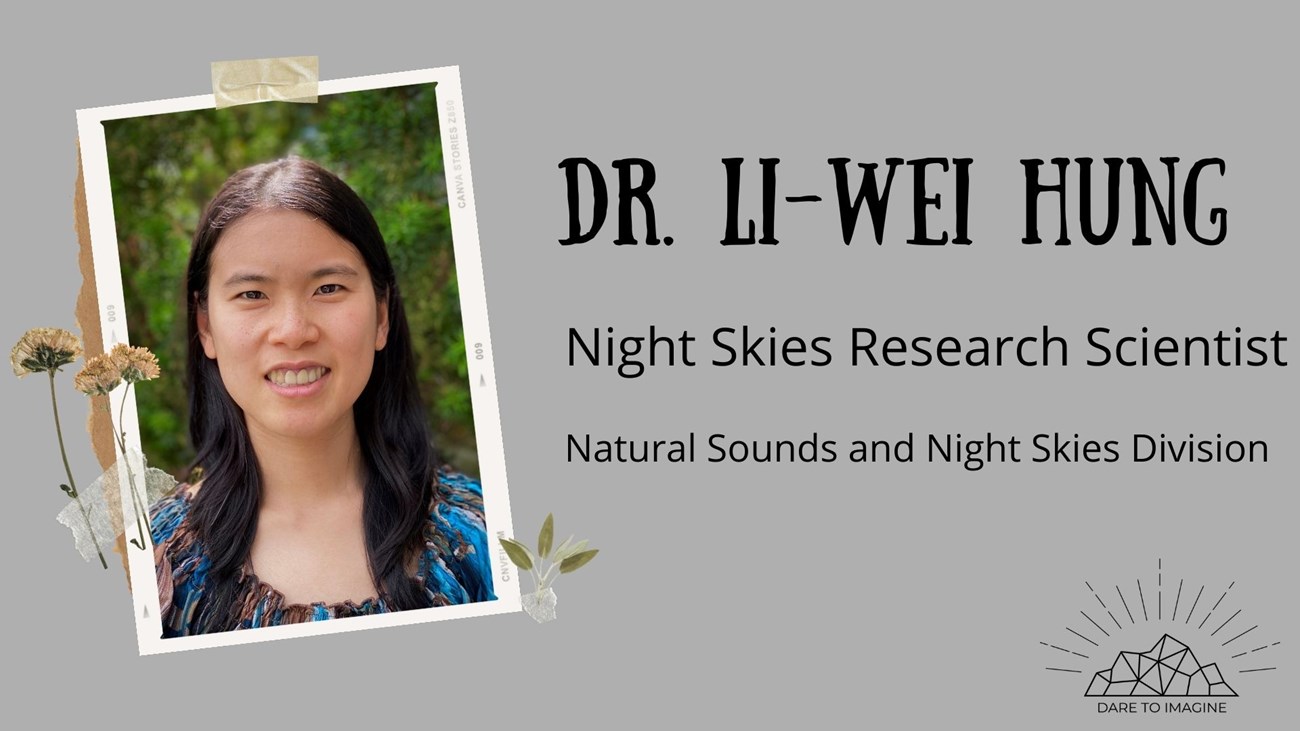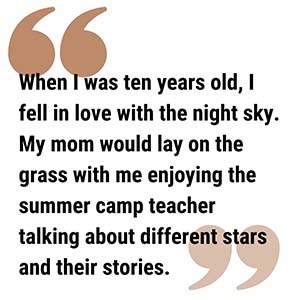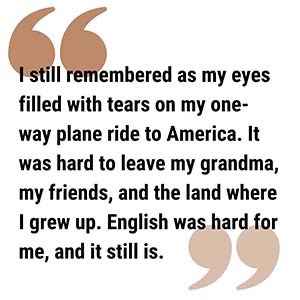Last updated: January 28, 2022
Article
Dare to Imagine: Dr. Li-Wei Hung

Women Lifting Other Women
"Li-Wei is such an inspiration! Her story about immigrating to the US when she was in High School with minimal proficiency of the English language, then going on to get her Masters and PhD in Astronomy, and now working to protect the night skies in our national parks, makes her a superb role model of achieving one's dreams if we only dare to imagine. As a co-worker, Li-Wei has helped improve my understanding of the complicated components of a night sky, such as sky glow, light scattering, and research that helps park staff and our public reduce artificial light at night impacts on values associated with the night sky."
-Gina Pearson, Environmental Protection Specialist Natural Sounds and Night Skies Division
Dr. Hung, what project would you like to highlight?
Changes in night sky brightness after a countywide LED retrofit.
Will you tell us a little about that project?
The natural night sky and nocturnal environment are vital resources for ecological systems and visitors’ experience in national parks. Inappropriate lighting can increase light pollution, and skyglow can be seen from as far as 200 miles away. Many cities are investing in new light-emitting diodes (LED) to reduce energy consumption and maintenance costs of streetlights, but do these lighting retrofits decrease or increase light pollution in the night sky?To answer this question, I led a study to document changes in night sky brightness resulting from a countywide lighting retrofit. The retrofit took place in Chelan County, a gateway community to North Cascades National Park and Lake Chelan National Recreation Area in Washington State. The county retrofitted all 3,693 county-owned high-pressure sodium (HPS) streetlights to fully-shielded LEDs.
I used a calibrated camera to measure the changes before and after the retrofit. Images of the night sky showed that the light dome became brighter and extended higher into the sky, making skyglow worse. This study indicates that the LEDs must have warmer color (< 3000 K) or be more than 50% dimmer than HPS to reduce skyglow. My work helps inform park managers and other cities worldwide on how to convert to LED streetlights without increasing light pollution.

What was your path like? How did you get to where you are now?
I grew up in Taipei, Taiwan. Taiwan is a sweet potato-shaped island in south east Asia full of tropical fruits and fresh seafood. When I was ten years old, I fell in love with the night sky. My mom would lay on the grass with me enjoying the summer camp teacher talking about different stars and their stories. Before I immigrated to America, my high school teacher told me, “If you are serious about astronomy, you should study physics in college.” Physics is the foundation of astronomy. With a physics degree, the options are broader if I wanted to switch fields or get a job. So, I ended up getting a B.S. degree in physics and astronomy. I carried this enthusiasm all the way through graduate school. I was awarded with the National Science Foundation Graduate Research Fellowship and then earned my Ph.D. in astronomy from UCLA.
I never thought that I would be working for the National Park Service. I have never heard nor known anyone with an astronomy degree working for the park service. When I was looking for a job fresh out of school, I looked at everything- I took training to become a faculty member at a higher education institution, I interviewed for data scientist positions at Fortune 500 companies, I even applied to work in the South Pole research station. When I saw this night sky research position posting, I jumped on it! Now I provide scientific support for conserving natural night skies to all U.S. National Park Service park units. I am grateful to be able to use my specialty to conserve what I love so that I can share the starry sky now and for future generations.

What was the hardest part about getting to where you are now? How did you overcome it?
As my sister put it, astronomy is a weird major. Indeed, I sometimes asked myself what can I do with an astronomy degree? Will I be able to find a job after I graduate? When I was applying for jobs, this was one of the most stressful phases in my life. Thankfully, I got help and support along the way. My family is supportive on what I chose to study, my high school teacher pointed out how to approach the field, my college professors gave me taste of scientific research, and my graduate school advisor facilitated a wonderful PhD experience. However, I’m still aware that the job market for astronomers is small. Therefore, I often remind myself to stay on top of the data analysis to stay competitive.

What are you most proud of?
I still remembered as my eyes filled with tears on my one-way plane ride to America. It was hard to leave my grandma, my friends, and the land where I grew up. English was hard for me, and it still is. Looking back from where I am now, I am proud of overcoming the challenges of transitioning between two different cultures. On a lighter note, I also feel accomplished when I reach my destination while backpacking, when I summitted Colorado’s tallest peaks, and when I successfully baked a loaf of bread from scratch!

Favorite Quote?

